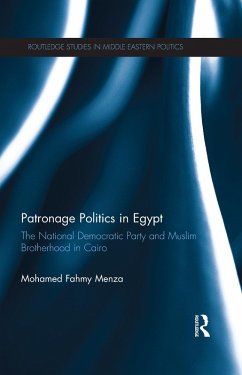Between the military takeover of 1952 and the collapse of the Mubarak regime in 2011, the political system of Egypt depended upon a variety of mechanisms and structures to establish and consolidate its powerbase. Among those, an intricate web of what could be described as 'patronage politics' emerged as one of the main foundations of these tools.
Throughout the post-1952 era, political patrons and respective clients were influential in Egyptian politics, shaping the policies implemented by Egypt's rulers, as well as the tactics orchestrated by the wider population. On a macro level Patronage Politics in Egypt examines the activities of the NDP (ruling party from 1978-2011) and its opposition, the Muslim Brotherhood. On a micro level, the book uses the area of Misr Al Qadima as a case study to examine the factors that ensured the durability of patronage networks within the Egyptian polity.
By examining how the local links into macro-level politics, this book portrays the socio-economic and political contexts that set the stage for the January 25 Revolution. This topical study will be an invaluable resource for students, scholars and researchers of the Middle East and Islam as well as those with a more general interest in politics.
Throughout the post-1952 era, political patrons and respective clients were influential in Egyptian politics, shaping the policies implemented by Egypt's rulers, as well as the tactics orchestrated by the wider population. On a macro level Patronage Politics in Egypt examines the activities of the NDP (ruling party from 1978-2011) and its opposition, the Muslim Brotherhood. On a micro level, the book uses the area of Misr Al Qadima as a case study to examine the factors that ensured the durability of patronage networks within the Egyptian polity.
By examining how the local links into macro-level politics, this book portrays the socio-economic and political contexts that set the stage for the January 25 Revolution. This topical study will be an invaluable resource for students, scholars and researchers of the Middle East and Islam as well as those with a more general interest in politics.
Dieser Download kann aus rechtlichen Gründen nur mit Rechnungsadresse in A, B, BG, CY, CZ, D, DK, EW, E, FIN, F, GR, HR, H, IRL, I, LT, L, LR, M, NL, PL, P, R, S, SLO, SK ausgeliefert werden.


